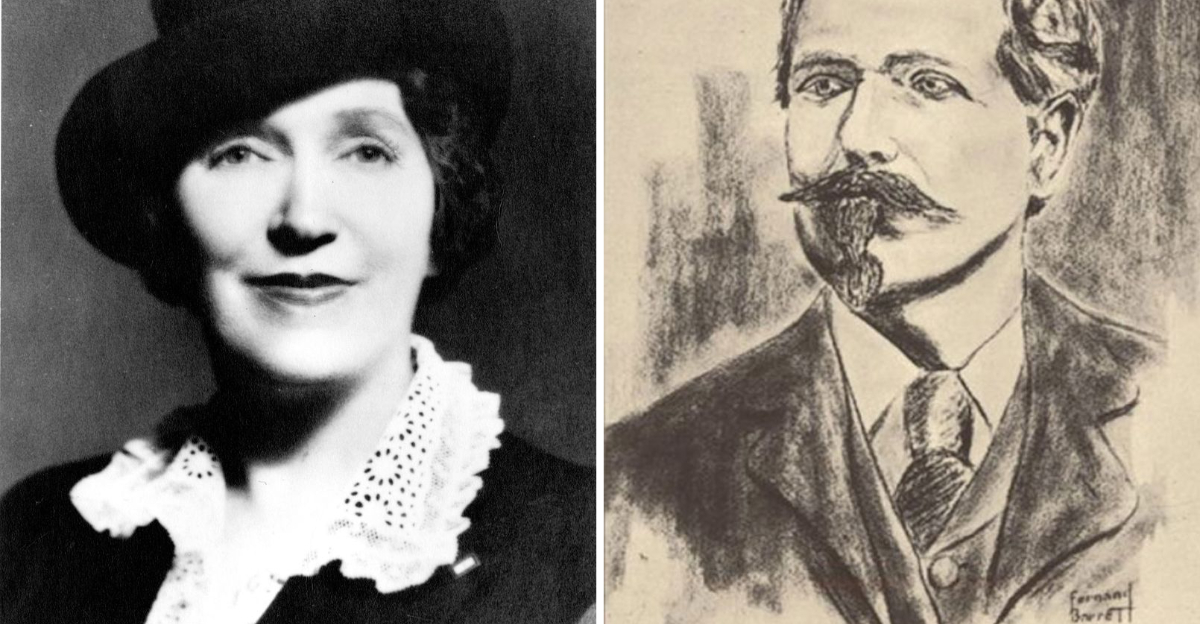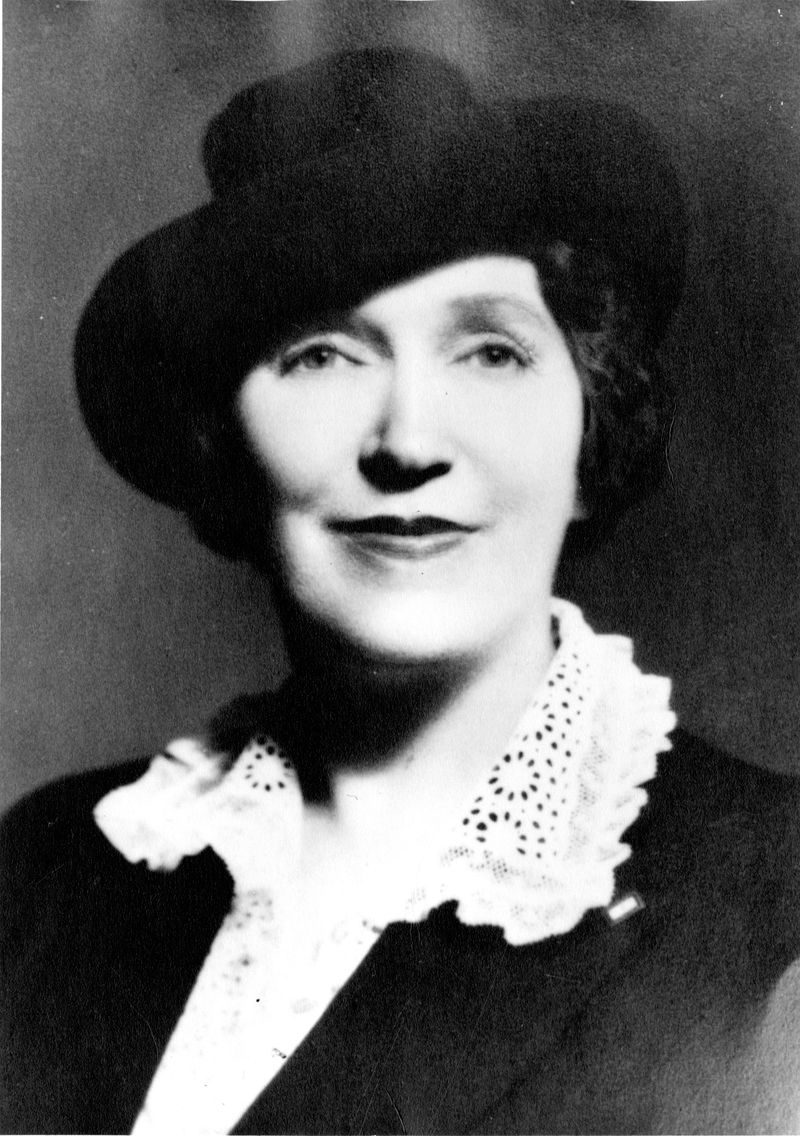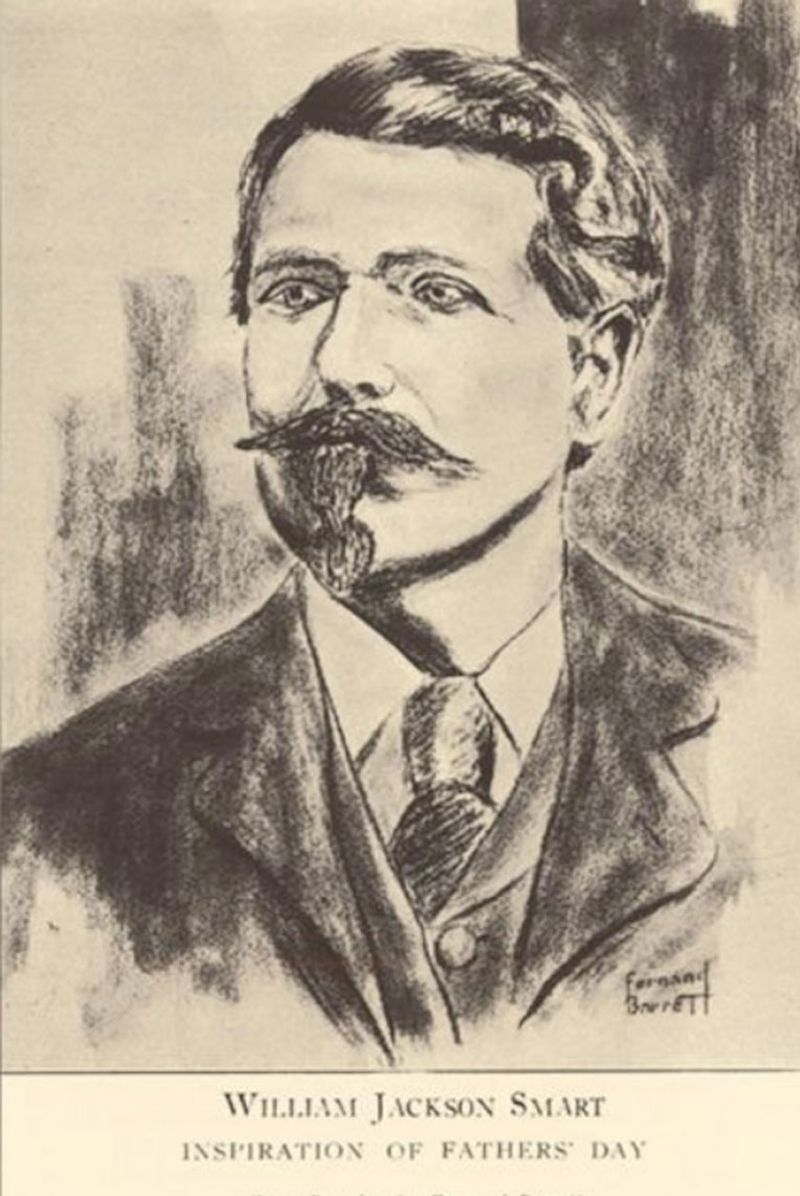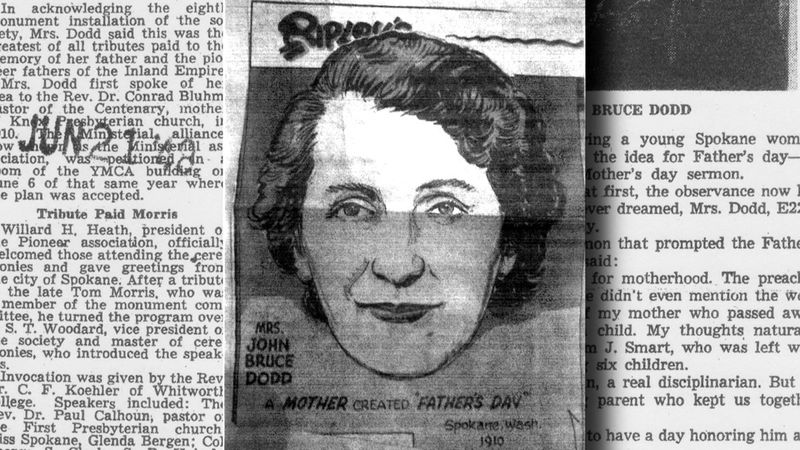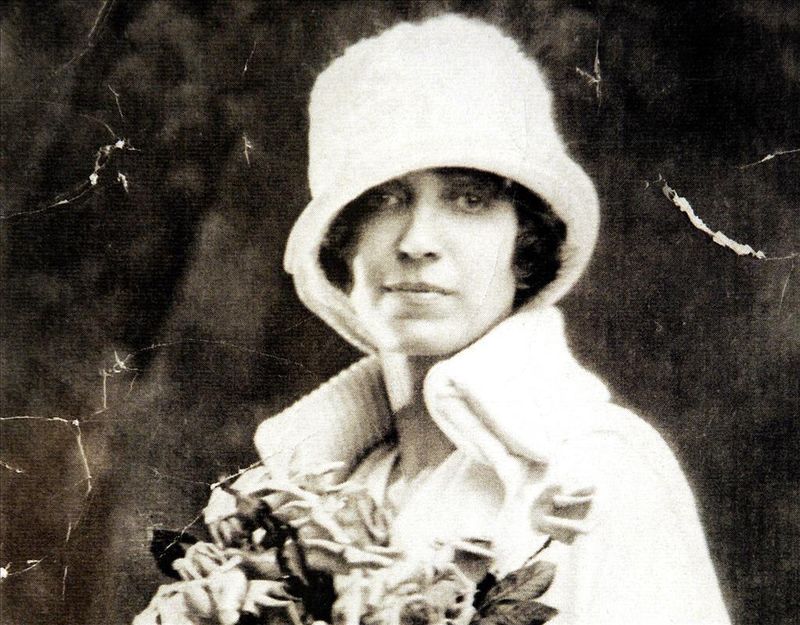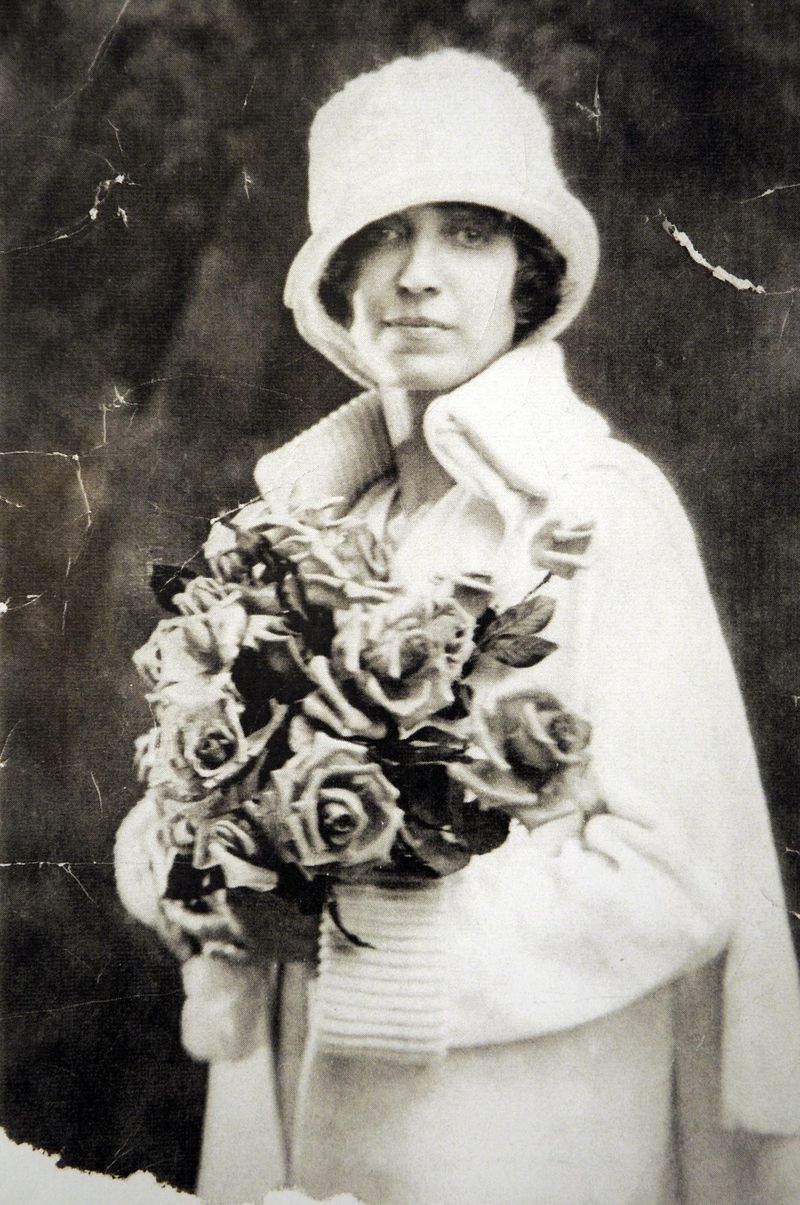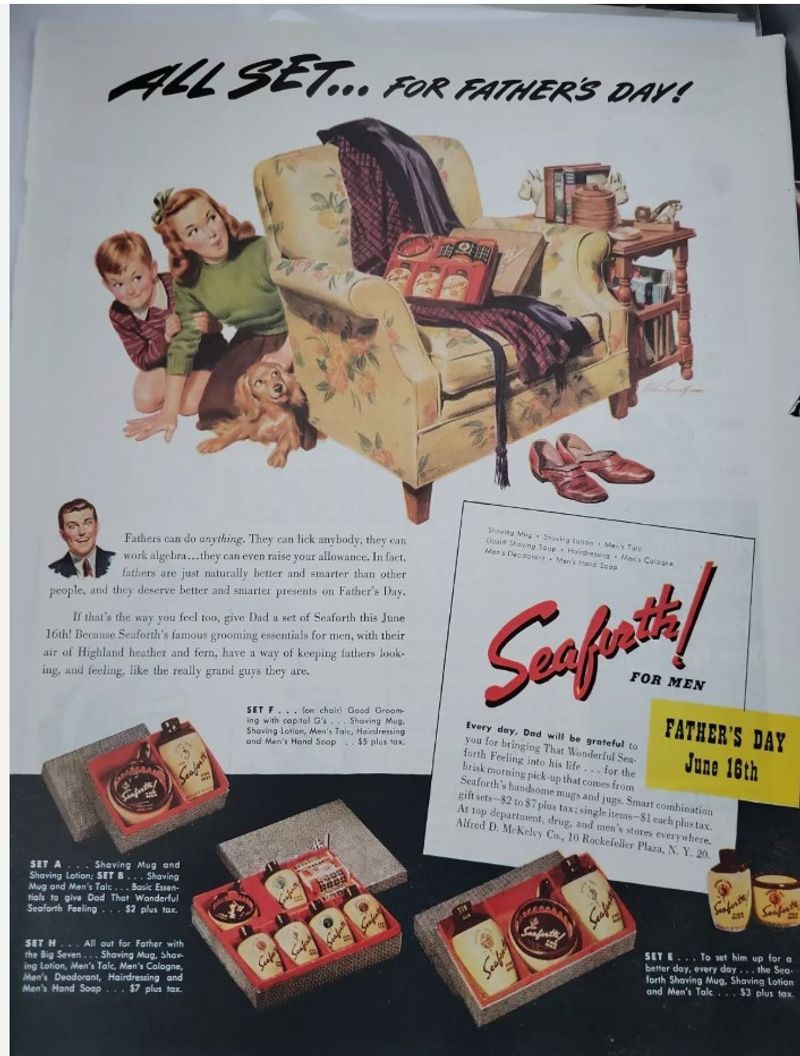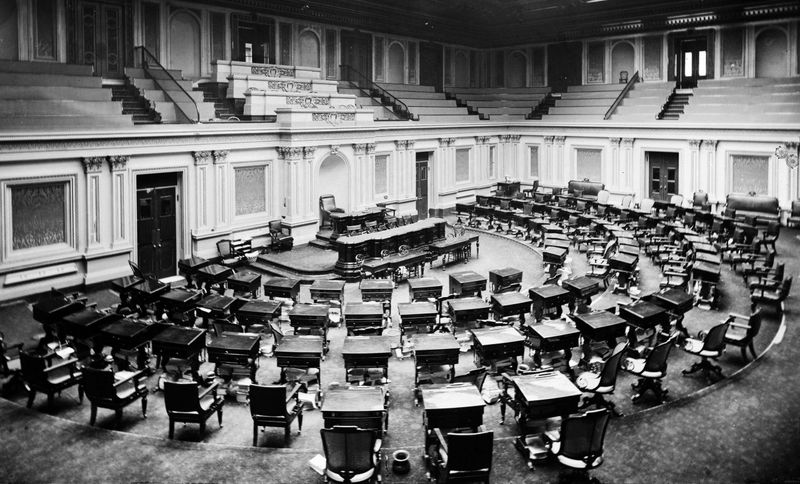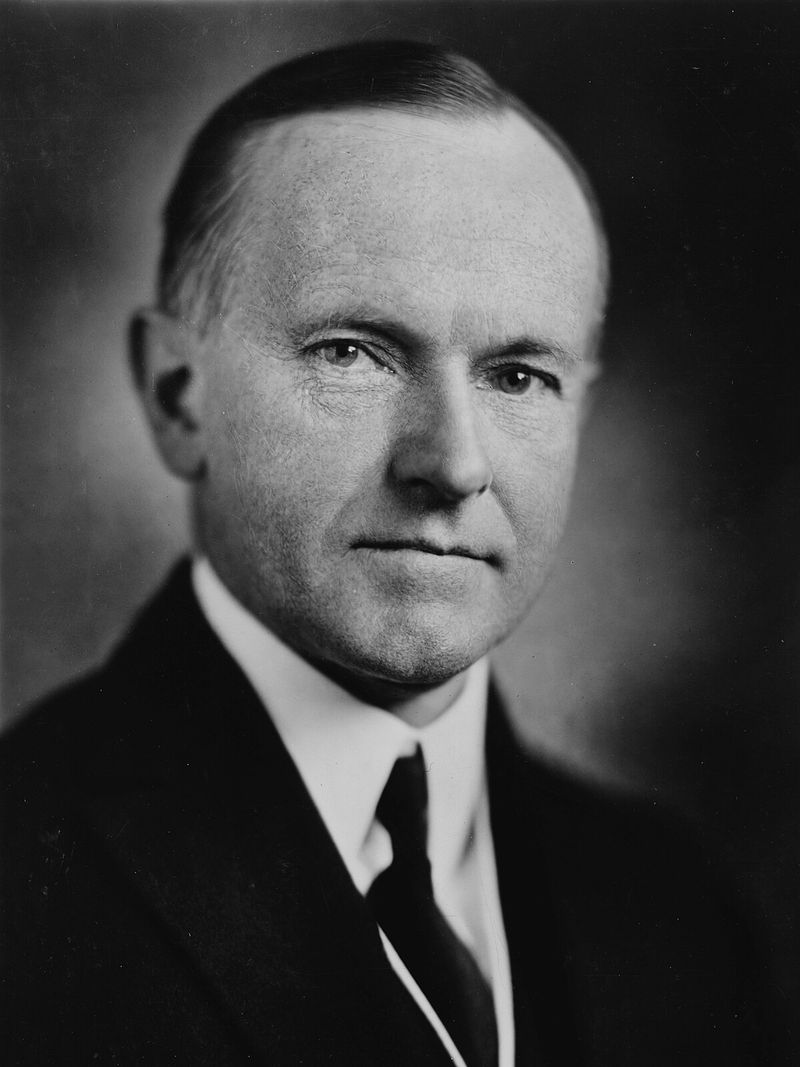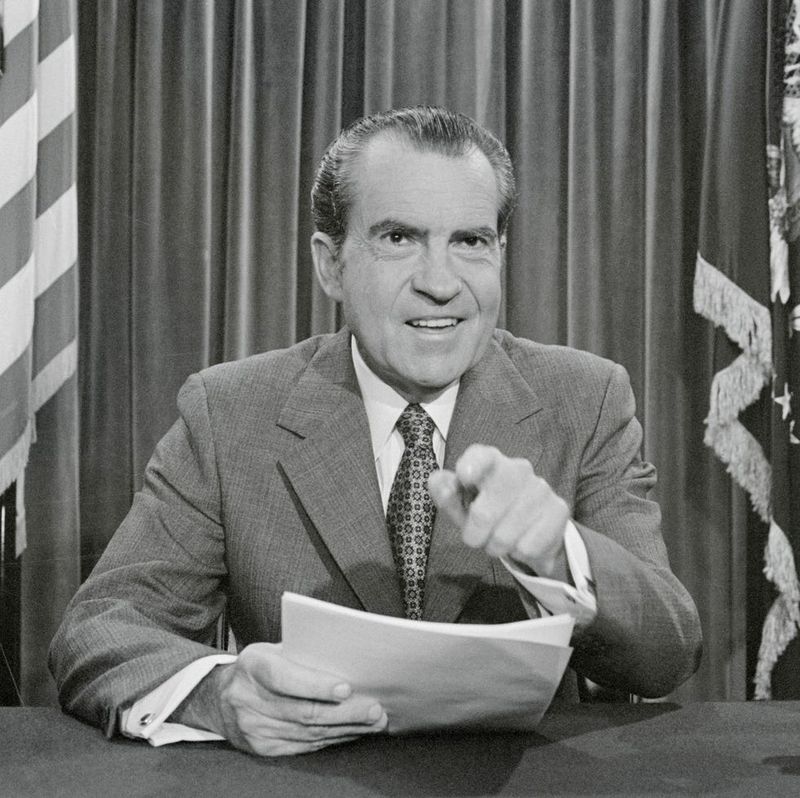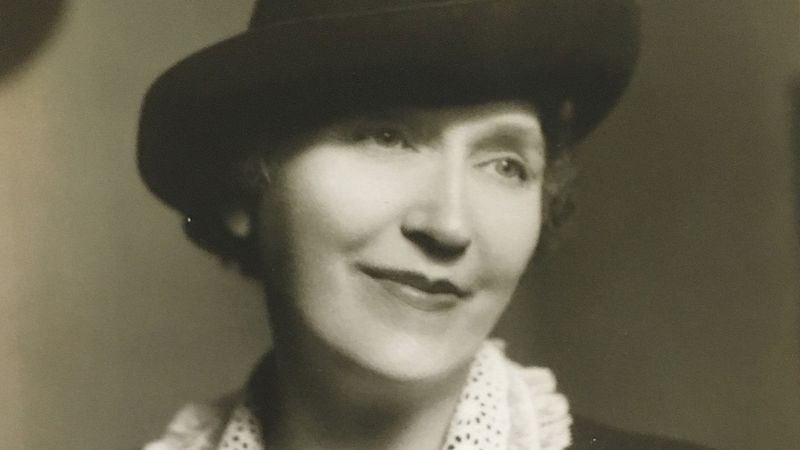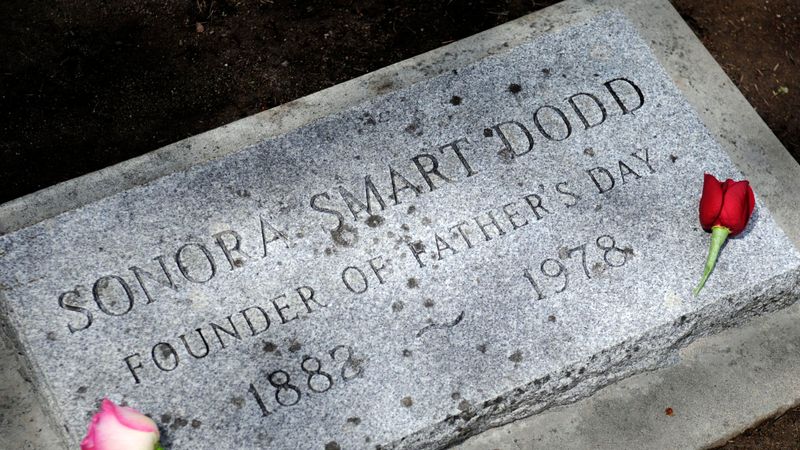Behind every heartfelt Father’s Day card is a story most people don’t know. This holiday wasn’t created by greeting card companies or government officials. Instead, it began with one woman’s love for her father. Her determination turned a small local celebration into a day honored around the world. Let’s discover the remarkable journey of Father’s Day and the woman who made it all happen.
1. Sonora Smart Dodd: The Visionary Daughter
While mothers were celebrated nationally, Sonora Smart Dodd wondered why fathers didn’t receive the same recognition. The daughter from Spokane, Washington felt this absence deeply because of her own remarkable father.
William Jackson Smart, a Civil War veteran, had raised six children single-handedly after his wife died in childbirth. His dedication inspired Sonora to launch a campaign that would change American holidays forever.
During a Mother’s Day church service in 1909, Sonora conceived the idea that would eventually touch millions of families across generations.
2. A Father Worth Celebrating
William Jackson Smart embodied everything a father should be. After his wife died during the birth of their sixth child, he faced an almost impossible task – raising his children alone in rural America.
Rather than splitting up the family as many would have done in that era, William took on both parental roles. He taught his children practical skills while showing them tenderness usually associated with mothers in that time.
Sonora watched her father cook meals, mend clothes, and provide emotional support – all while working his farm to support them financially.
3. The First Father’s Day Celebration
June 19, 1910 marked a historic moment in Spokane, Washington. The YMCA building bustled with activity as the first official Father’s Day celebration took place.
Local churches joined the effort, delivering special sermons honoring fathers and their contributions to family life. Throughout the city, small gifts were presented to fathers, and those without fathers wore white roses in remembrance.
Red roses symbolized living fathers, creating a visual tradition that would continue for years. Though modest compared to today’s celebrations, this first observance planted seeds that would eventually grow nationwide.
4. Mother’s Day Sparked the Inspiration
The creation of Mother’s Day in 1908 lit a spark in Sonora’s mind. Sitting in church during a Mother’s Day sermon in 1909, she couldn’t help but think of her father’s extraordinary devotion.
Why shouldn’t fathers receive similar recognition? The question lingered as she approached her pastor after the service to discuss her idea.
Her pastor embraced the concept, and soon Sonora began visiting other churches, businesses, and government officials throughout Spokane. Her passionate advocacy convinced the Ministerial Association and the YMCA to support her vision.
5. June: The Perfect Month for Dads
Sonora originally hoped to celebrate the first Father’s Day on June 5, 1910 – her father’s birthday. Her ambitious timeline proved too tight for local churches to prepare special sermons.
The Spokane Ministerial Alliance suggested pushing the celebration to later in the month. They settled on the third Sunday of June, a date that would eventually become tradition worldwide.
This timing in early summer offered pleasant weather for outdoor gatherings and activities that fathers typically enjoyed. The June date stuck, and more than a century later, we still honor fathers during this summer month.
6. A Decades-Long Campaign for Recognition
Success in Spokane wasn’t enough for Sonora. She wanted national recognition for fathers everywhere, launching a tireless campaign that would span most of her lifetime.
She wrote countless letters to newspapers, politicians, and businessmen. When traveling for her job as a writer and poet, she used every opportunity to promote Father’s Day to new audiences.
The Spokane Ministerial Association, local businesses, and eventually manufacturers of men’s goods joined her cause. Despite widespread mockery in the press, Sonora remained undeterred, convinced of the holiday’s importance.
7. Retailers: Unlikely Champions of Tradition
By the 1930s, Father’s Day faced a crucial turning point. Critics dismissed it as merely a commercial invention, yet ironically, it was commerce that helped save it.
Men’s clothing retailers, tobacco companies, and manufacturers of traditionally masculine goods recognized the holiday’s potential. They formed the National Council for the Promotion of Father’s Day, creating sophisticated marketing campaigns.
These businesses helped standardize Father’s Day traditions through advertisements featuring neckties, pipes, and tools as ideal gifts. Their financial backing provided resources Sonora needed to continue her advocacy at the national level.
8. Congressional Resistance to Celebration
Father’s Day faced an uphill battle in Washington D.C. for decades. Many congressmen openly mocked the idea, seeing it as frivolous or purely commercial.
Some legislators worried about cheapening Mother’s Day by creating too many similar holidays. Others, ironically, resisted because they feared being seen as self-congratulatory by creating a holiday honoring themselves as fathers.
Bills to recognize Father’s Day nationally were introduced repeatedly throughout the 1920s and 1930s but failed to gain traction. This congressional resistance explained why official recognition took over 60 years to achieve.
9. President Coolidge’s Early Endorsement
The first presidential support for Father’s Day came in 1924, when Calvin Coolidge weighed in on the growing movement. Known for his reserved nature, Coolidge surprised many by endorsing the celebration.
He recommended that states observe the day but stopped short of issuing a proclamation that would make it official. His stated purpose revealed much about the era’s family values: “to establish more intimate relations between fathers and their children.”
Coolidge’s support gave legitimacy to Sonora’s cause, even if it didn’t immediately translate to federal recognition. His endorsement represented an important step forward after years of mockery.
10. President Johnson’s Proclamation Milestone
Lyndon B. Johnson brought Father’s Day significantly closer to official status in 1966. Amid the social upheaval of the 1960s, the Johnson administration saw value in promoting family stability through traditional celebrations.
On June 7, 1966, Johnson signed Presidential Proclamation 3721, designating the third Sunday in June as Father’s Day. He called for “appropriate ceremonies” and government building displays of the American flag.
Though significant, this proclamation still didn’t make Father’s Day a permanent national observance. That final step would require an act of Congress and another president’s signature.
11. Nixon Makes It Official: 1972
The journey to full recognition culminated in 1972, when Richard Nixon signed Public Law 92-278. This legislation permanently established Father’s Day as a national holiday on the third Sunday of June.
Nixon, himself a father of two daughters, framed the holiday as part of his administration’s focus on traditional family values. The timing proved fortuitous – just as the Watergate scandal began brewing, this popular measure gave the administration a positive news story.
For Sonora Smart Dodd, now in her late 80s, this moment represented the fulfillment of a six-decade dream.
12. The Symbolic Rose Tradition
Few people today know about the flower tradition that once defined Father’s Day celebrations. Red roses honored living fathers, while white roses remembered those who had passed away.
This touching custom mirrored the carnation tradition of Mother’s Day, creating a beautiful symbolic connection between the two holidays. Churches would distribute roses to congregants before services, creating a visual representation of fatherhood’s impact.
Though largely forgotten today, this tradition reveals how Father’s Day once carried deeper symbolic meaning beyond gifts and cards. Some traditionalists still wear roses on the holiday to honor this original practice.
13. Sonora’s Recognition in Her Lifetime
After decades of advocacy, Sonora finally received widespread recognition for her creation. The 1974 World’s Fair in Spokane became a celebration not just of global achievement but of the city’s connection to Father’s Day.
At age 91, Sonora was honored as a special guest, receiving tributes from government officials and business leaders. Newspapers that had once mocked her idea now praised her persistence.
Though frail, she witnessed her simple idea transformed into an international tradition. She died in 1978 at age 96, having lived to see her father’s legacy honored by millions of families worldwide.
14. Congressional Recognition of Sonora
The United States Congress formally acknowledged Sonora’s contribution to American culture through special recognition in the Congressional Record. This official documentation cemented her place in national history.
Lawmakers praised her persistence and vision, noting how one citizen’s grassroots effort had created a lasting tradition. Some representatives who had once opposed the holiday now celebrated its founder.
The congressional recognition highlighted how Father’s Day strengthened American family values. This official acknowledgment ensured that Sonora’s name would be forever linked with the holiday she championed through decades of resistance.
15. From Local Tribute to Global Tradition
What began in one small American city has expanded to touch lives worldwide. Father’s Day is now celebrated in over 110 countries, though dates and traditions vary across cultures.
In Germany, men celebrate Männertag (Men’s Day) by hiking with wagons of beer. Thailand celebrates on December 5, the birthday of their beloved late King Bhumibol Adulyadej. Catholic countries often observe it on St. Joseph’s Day, March 19.
Despite these cultural differences, the core purpose remains remarkably similar – honoring the contributions fathers make to family life and society. Sonora’s vision transcended national boundaries to become truly universal.
